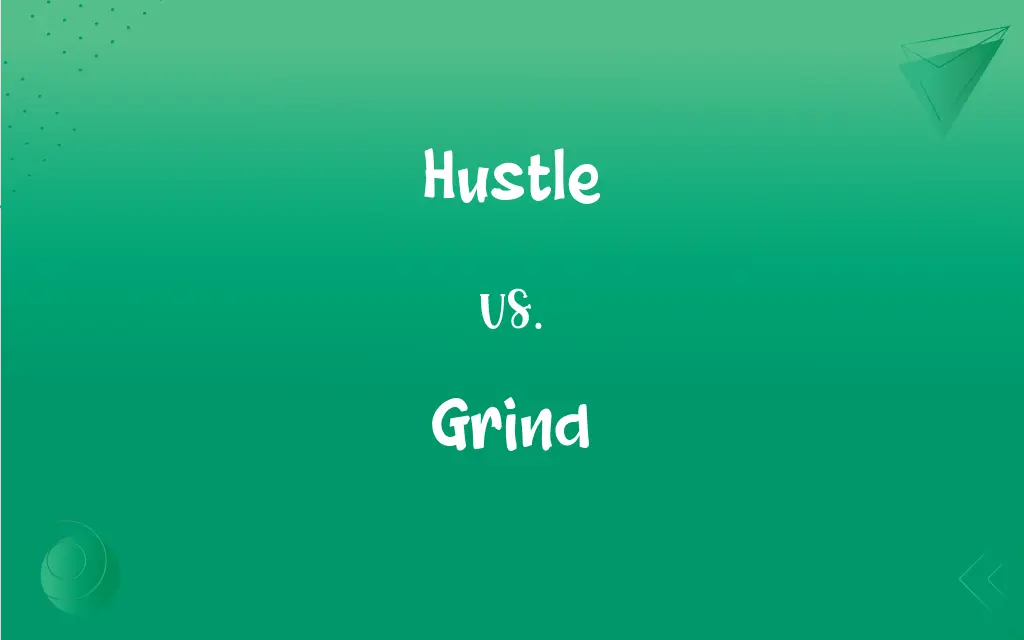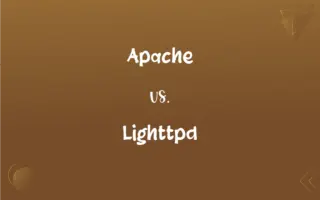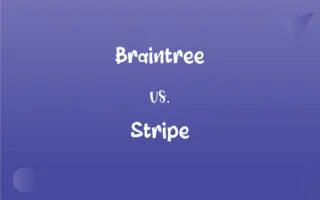Hustle vs. Grind: What's the Difference?
Edited by Aimie Carlson || By Harlon Moss || Updated on October 15, 2023
"Hustle means proactive actions to achieve goals quickly; grind is steady, relentless effort toward a long-term goal."

Key Differences
The hustle is typically associated with a sense of urgency, involving doing whatever it takes to achieve one's goals, often in the context of business or advancing one's personal agenda. In contrast, the grind represents a more consistent, day-in, day-out dedication to work, often requiring resilience and endurance through monotony and difficulty.
Engaging in hustle often means taking proactive, sometimes aggressive actions, and seizing every opportunity. It's about being on the front foot, trying to make things happen, and often shaking things up. The grind, however, speaks to the idea of hard work done consistently over time, especially work that is routine and exhaustive. It's not about making waves but instead, the dedication to keep pushing forward, no matter how tough things get.
Hustle can also imply a certain level of self-promotion or assertiveness; it's often used in contexts where individuals are trying to stand out, make a sale, or get ahead in a competitive environment. The grind is less about the spotlight and more about the slow, steady, often unseen effort that individuals put in behind the scenes, day after day.
People often talk about the hustle in entrepreneurial terms – it's about getting your start-up off the ground, securing funding, or getting that next big client. It's energetic, fast-paced, and relentless in a dynamic sense. The grind, conversely, could refer to the daily responsibilities of maintaining a business once it's established — handling paperwork, managing employees, keeping clients happy — all the continuous tasks that aren't glamorous but necessary.
Ultimately, both hustle and grind are about the pursuit of success, but they approach it in different ways. The hustle is sprinting, taking the stairs two at a time, looking for shortcuts, or even creating new paths. The grind is more of a marathon, putting one foot in front of the other on a long, often arduous journey.
ADVERTISEMENT
Comparison Chart
Definition
Proactive actions for quick success.
Steady, enduring effort over time.
Tempo
Fast-paced, urgent.
Slow, consistent.
Approach
Opportunistic, assertive.
Resilient, relentless.
Context
Entrepreneurial, competitive.
Daily tasks, routine work.
Visibility
Outward, attention-grabbing.
Often unseen, behind-the-scenes.
ADVERTISEMENT
Hustle and Grind Definitions
Hustle
In business, to hustle means to aggressively promote or push one's agenda.
He managed to hustle his way into the meeting with investors.
Grind
To grind can mean to work hard and steadily toward a goal.
He continued to grind toward his degree despite the challenges.
Hustle
In sports, to hustle means to play aggressively and with enthusiasm.
The coach always encouraged players to hustle on the field.
Grind
To grind can also mean to reduce something to small particles or powder by crushing it.
She watched the barista grind the coffee beans.
Hustle
Hustle means working rapidly or energetically toward one's goals.
Her hustle paid off when she became the top salesperson.
Grind
Grind refers to performing repetitive tasks over a long period, often for little reward.
The daily grind at work was wearing her down.
Hustle
Hustle can mean to obtain something by energetic action or persuasion.
She had the hustle necessary to get the project funded.
Grind
In slang, to grind can mean to dance very closely and suggestively.
They were grinding to the beat of the music.
Hustle
In street slang, hustle can mean to make money through questionable or illegal means.
He used to hustle on the streets before turning his life around.
Grind
In video games, grinding refers to the process of engaging in repetitive tasks to progress.
I spent all night grinding to level up my character.
Hustle
To move or act energetically and rapidly
We hustled to get dinner ready on time.
Grind
To reduce to small bits or crush to a fine powder
Grind wheat into flour.
Grind coffee beans.
Hustle
To push or force one's way.
Grind
To shape, sharpen, or refine with friction
Grind scissors to a fine edge.
Grind lenses for eyeglasses.
FAQs
What is the difference between "hustle" and "grind"?
"Hustle" typically refers to taking action and making things happen, often in a determined and energetic way. "Grind" refers to persistent and hard work, often with a focus on routine tasks.
Where is "grind" more commonly used?
"Grind" is commonly used in a wide range of contexts, including sports, work, and daily routines to emphasize consistent, hard work.
Is one of these words more informal than the other?
Both "hustle" and "grind" are somewhat informal, but "hustle" can carry a more entrepreneurial or go-getter connotation.
Are there specific industries or contexts where "hustle" is used more frequently?
"Hustle" is often associated with entrepreneurial or business contexts where proactive and creative efforts are emphasized.
Can "hustle" or "grind" be used negatively, such as in overworking or exploitation?
Yes, in some contexts, they can be used to describe excessive or exploitative work, but this is not their primary meaning.
Can you "hustle" in a team, or is it more individualistic?
You can "hustle" as an individual or within a team. It's about taking initiative and being proactive.
Can "hustle" and "grind" be used interchangeably?
While they share some similarities, they are not entirely interchangeable, as they convey slightly different aspects of work ethic.
Do these words have synonyms in English?
Synonyms for "hustle" include "bustle," "strive," and "hurry." Synonyms for "grind" include "toil," "labor," and "effort."
Are there idiomatic expressions or phrases associated with "hustle" and "grind"?
Yes, phrases like "hustle and bustle" and "daily grind" are commonly used to refer to busy or routine activities.
Do "hustle" and "grind" have historical origins or associations?
Both words have longstanding meanings related to hard work and effort, but their current popular usage has evolved.
Are "hustle" and "grind" used in sports terminology?
Both words can be used in sports to describe players' dedication and effort, with "hustle" emphasizing agility and quick action.
Can "hustle" and "grind" be used as verbs and nouns?
Yes, both can be used as both verbs and nouns. For example, "I need to hustle to make a living" or "The daily grind can be tiring."
Are there positive or negative connotations associated with "hustle" or "grind"?
"Hustle" often has a positive connotation, emphasizing initiative and ambition. "Grind" can have a neutral or slightly negative connotation, emphasizing hard work without glamour.
Are "hustle" and "grind" used in other languages?
These words may have equivalents in other languages, but their usage and connotations can vary.
Do "hustle" and "grind" have opposite meanings?
No, they don't have opposite meanings; they emphasize different aspects of a strong work ethic. "Hustle" is about active, dynamic effort, while "grind" is about persistent, routine work.
Is "hustle" more about seizing opportunities, while "grind" is about persistence?
That's a fair characterization. "Hustle" often involves seizing opportunities, while "grind" emphasizes persistence.
Can "hustle" be used for creative endeavors, like art or music?
Yes, "hustle" can be used in creative contexts to describe active efforts to promote or succeed in those fields.
Is there a cultural difference in how "hustle" and "grind" are perceived?
Cultural perceptions may vary, but the core meanings remain consistent in English-speaking cultures.
Is there a preference for using "hustle" or "grind" in motivational or self-help literature?
"Hustle" is often used in motivational contexts to inspire action, while "grind" may be used to stress the importance of consistency.
Is "grind" related to working long hours, or is it more about consistency?
"Grind" is more about consistent and often long-term effort, emphasizing the day-to-day routine.
About Author
Written by
Harlon MossHarlon is a seasoned quality moderator and accomplished content writer for Difference Wiki. An alumnus of the prestigious University of California, he earned his degree in Computer Science. Leveraging his academic background, Harlon brings a meticulous and informed perspective to his work, ensuring content accuracy and excellence.
Edited by
Aimie CarlsonAimie Carlson, holding a master's degree in English literature, is a fervent English language enthusiast. She lends her writing talents to Difference Wiki, a prominent website that specializes in comparisons, offering readers insightful analyses that both captivate and inform.































































